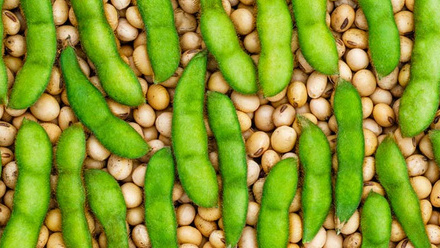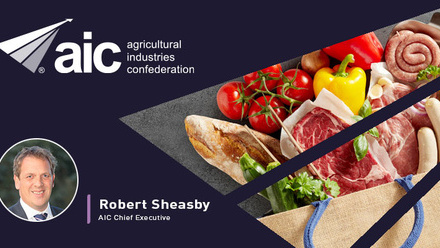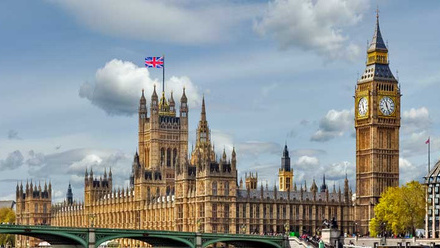FAQs: Food security in the UK - why it matters and how to improve it
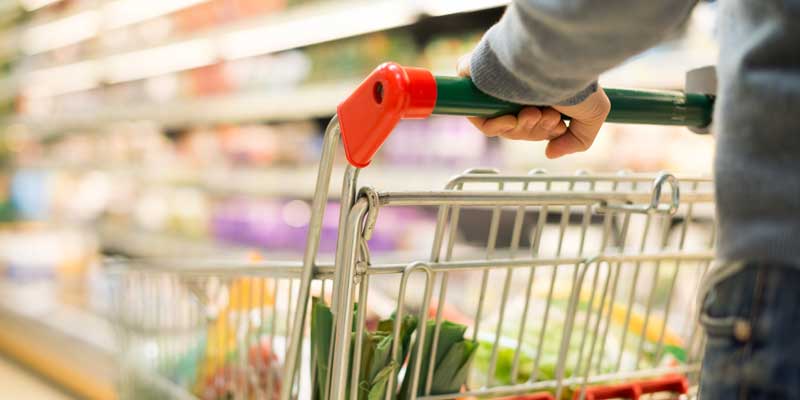
Find the answers to frequently asked questions about the UK’s food security, including how it affects individuals, families, and businesses in the supply chains that make up our food system and the wider economy.
The below FAQs explain the key challenges to UK food security and how it can be improved.
What is food security, and why is it so important for the UK?
Food security ensures that everyone has consistent and reliable access to sufficient, safe, and nutritious food.
It is crucial for the UK to maintain and enhance its food security to safeguard public health, economic stability, and resilience against global supply disruptions.
Individuals, families, and businesses operating in the supply chains which make up our food system are all impacted by the level of food security in the UK.

Food security is a multifaceted and complex concept that involves addressing challenges like climate change and political instability, and implementing strategies to sustainably increase production, support greater supply chain efficiency, and develop workforce skills in the agricultural sector.
The Powering Productivity for Sustainable UK Food Security report (2023) described food security as "the balance between certainty and risk within the processes whereby food makes its way from the place of production to people’s plates.
"The processes are a complex mix of social, economic and environmental activities, events and outcomes that control all aspects of the production, transport, trading, processing and consumption of food.
In its 2021 UK Food Security Report, the UK Government identifies five themes of food security to evaluate and rationalise this inherent complexity:
- Global food availability
- UK food supply sources
- Supply chain resilience
- Food security at household level
- Food safety and consumer confidence
Food security also includes the effective and robust management of food and feed safety risks throughout the agri-food supply chains which make up our food system.
This requires close and consistent collaboration between the many stages of a food supply chain - from pre-farm suppliers and farmers, through to processors, retailers, and hospitality.
What are the main threats to UK food security?
One of the greatest threats to the UK’s food security include climate change and extreme weather which can negatively impacts crop yield and animal health.
Problems with food and feed safety are also major food security threats – either caused by deliberate adulteration of food in the supply chain or accidental contamination caused by a wide range of food and feed safety risks.
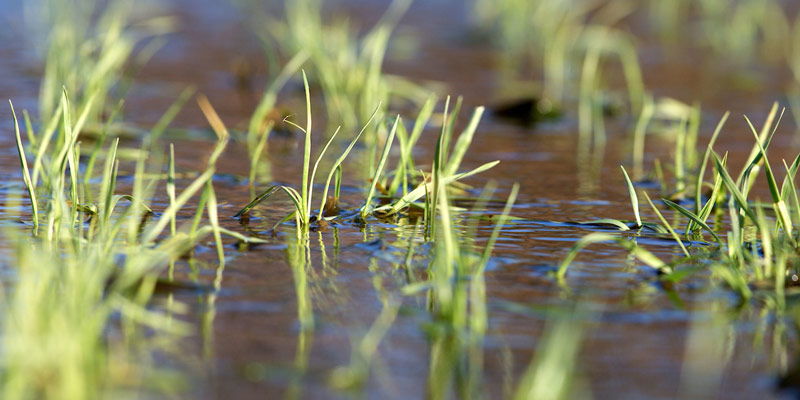
Other threats include geopolitical tensions affecting imports, rising production costs, and vulnerabilities in global supply chains.
The Powering Productivity for Sustainable UK Food Security report (2023) identifies additional threats to food security in the UK:
- Rising “non-food” agricultural production, such as bioenergy, biogas, textile, construction, and pharmaceutical products.
- Planning regulations increasing the pressure on food production in the UK.
- Reliance on imports, especially for fruits and vegetables, leading to vulnerability to supply chain disruptions.
- Dependency on migrant workers impacting labour availability, especially in sectors like fruit and vegetable production.
- Labour shortages in the agricultural sector since the UK’s withdrawal from the European Union.
- Market instability hindering investments and innovation in the agri-food supply chain.
- Fluctuating prices for agricultural goods creating market volatility and affecting food supply stability.
- Declining national health and increasing food poverty affecting access to nutritious food.
- The loss of direct support payments, with agri-environment schemes incentivising farmers to devote land to “environmental goods”, instead of food production.
- Policy and regulatory uncertainty post-Brexit, which is impacting productivity and the confidence of businesses to invest in production.
- A lack of training and education in the agricultural sector for addressing environmental challenges and technology integration.
- An aging workforce and a need to improve digital skills among older farmers.
- A dependency on single sources of supply for strategically important food/feed - such as China being the single source of certain vitamin and amino acid groups for use in animal feed.
- Land use changes impacting agricultural land availability for food production. There are competing pressures on UK land as a finite resource, including house building and infrastructure projects, energy production, and environmental improvement.
How does food security differ from self-sufficiency?
Self-sufficiency in food production is sometimes conflated with food security, and the former does not wholly support the later in isolation.
There are some food types which the UK is unable to be self-sufficient in, either because certain crops cannot be grown domestically, or demand greatly exceeds supply.
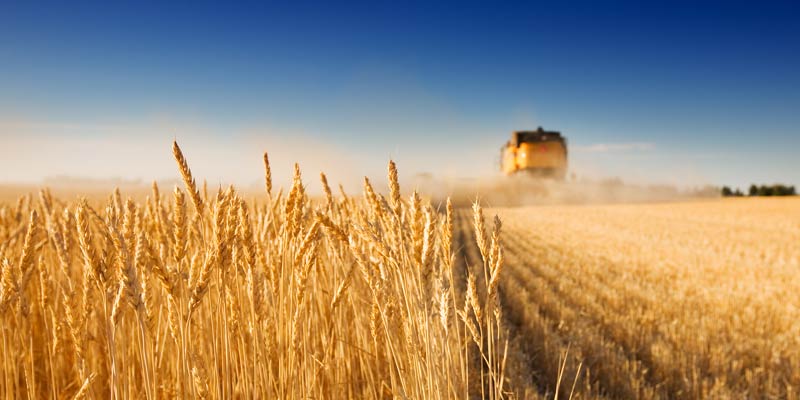
Food security refers to the ability of a nation to reliably provide safe, nutritious food to feed the population.
This encompasses how self-sufficient a nation is in the foods it can produce while also factoring in other important considerations like climate change, the geo-political landscape, global trade, and competing land use pressures for other needs such as housing and energy.
How self-sufficient is the UK in domestic food production compared with its reliance on imports?
The UK produces approximately 60% of its food domestically and relies on imports for the remaining 40%, according to official government statistics from 2022.
Over the past two decades, there has been a gradual dip in the UK’s self-sufficiency in food, down by 3% for major crops, rendering the UK more reliant on imports from the EU (comprising roughly 50% of all imports) and other parts of the world.
The UK is highly self-sufficient in arable and horticultural crops which produce our food hat can easily be produced in this country, such as wheat, barley, oats, sugar beet, and seasonal fruit and vegetables.
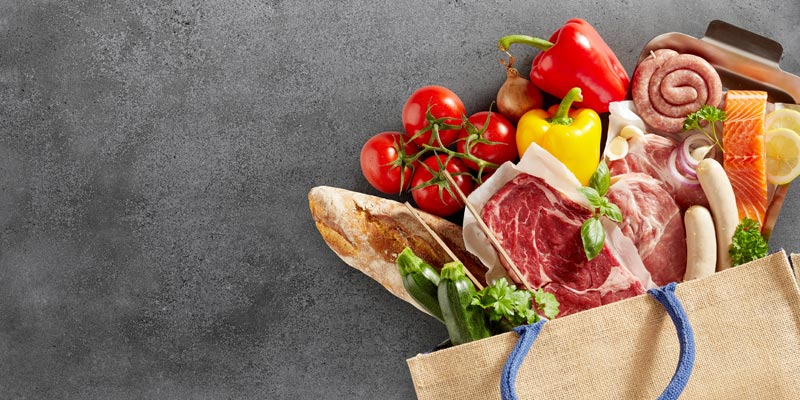
In this category, government data from 2022 shows that the UK grows 73% of what is consumed domestically.
According to the Agriculture and Horticulture Development Board (AHDB), in 2019 the UK was 86% self-sufficient in beef production, 109% self-sufficient in lamb, and 58% self-sufficient in pork.
For dairy – which includes liquid milk, cheeses, butter, and yoghurts – the UK is 85% self-sufficient according to trade body Dairy UK.
However, there are other foods that are not grown and produced in the UK because the climate is not conducive to this (e.g. oranges and bananas).
The UK produces approximately 16 million tonnes of animal feed each year - 53% by volume consists of domestically produced feed materials, while the remainder is imported.
The major imports are commodities that are not commonly grown in the UK, such as grain maize and oilseed meals from sunflowers, as well as palm and soya.
Find out more about soya and livestock feed by clicking below.
The UK climate also means certain varieties of cereals and other crops have to be imported. When domestic crops don’t meet yield or quality expectations, further imports may be required to cover these deficits.
Find out more about crop trading by watching the video below.
Would increasing the UK’s domestic food production improve national food security?
Increasing the UK’s domestic food production could help to improve national food security by enhancing self-sufficiency and reducing reliance on imports, thereby supporting farmers and growers, the agricultural supply sector, and the wider rural economy.
The Powering Productivity for Sustainable UK Food Security report (2023) finds that agricultural productivity "fundamentally underpins the nation’s food security".
Over the past two decades, the land area devoted to agricultural production in the UK has seen a modest decline of almost 3% compared to 2002, while agricultural production has increased by 5% over the same period.
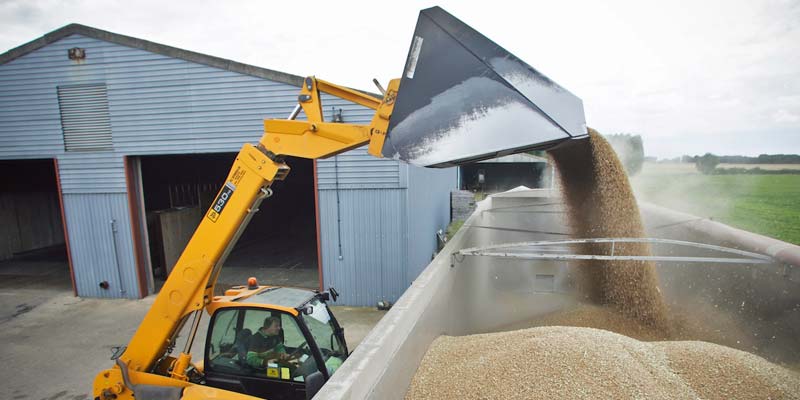
Henry Dimbleby – author of the National Food Strategy for England, an independent review for the UK Government – has suggested that a balance between producing food domestically and environmental improvements should be maintained, because of the increasing toll that climate change is expected to have on future harvests.
"In terms of food security, there is actually more to be gained from paying for environmental projects", he writes in his 2023 book Ravenous: How To Get Ourselves And Our Planet Into Shape.
"The biggest threats to food security are climate change and ecosystem collapse. Unpredictable weather patterns will make it harder to guarantee our food supply."
How does the UK's food security compare to other countries?
The UK ranks relatively high in food security compared to global standards, but it remains vulnerable to trade disruptions and the impacts of adverse weather conditions driven by climate change.
How does climate change affect food security in the UK?
Climate change can lead to unpredictable weather patterns, affecting the yields of crops and livestock, as well as putting pressure on animal health.
Investing technologies to breed in climate-resilient varieties of crops while also advancing sustainable farming practices will be essential to mitigate these impacts.
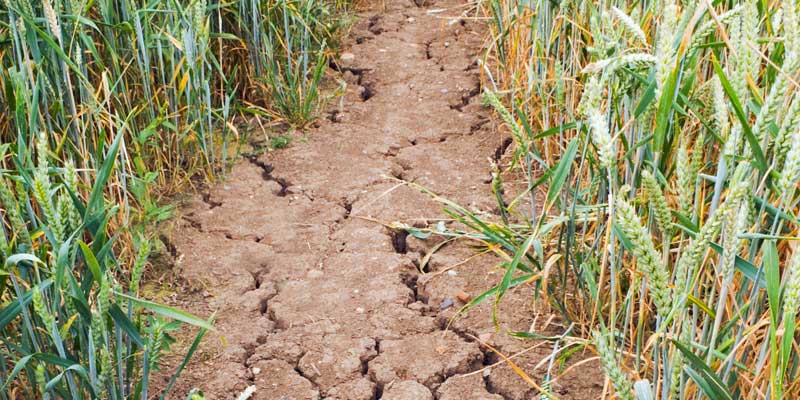
For example, precision breeding techniques using gene editing allows plant breeders to develop varieties of crops such as wheat, barley and oilseed rape which are more tolerant to drought.
Watch the video below to learn more about gene editing.
Novel animal feed technologies are also being developed by businesses which could help to reduce the amount of methane gas produced by farmed livestock.
Food and feed safety threats can also change depending on weather conditions driven by climate change. Increases or decreases of disease and pest pressure for crops and livestock are often a result of more extreme heat or rainfall.
This can result in higher mycotoxin levels in cereals, making them unsafe for human and animal consumption, or progress the spread of avian influenza (bird flu) in poultry which leads to welfare issues.
What can be done to ensure that the UK population has access to safe, affordable, nutritious food?
The UK Government and private sector can increase investment in sustainable agriculture practices.
These practices should be sustainable in the broadest sense – environmental, economic, and social – thereby improving supply chain efficiency, and supporting innovation in food production.
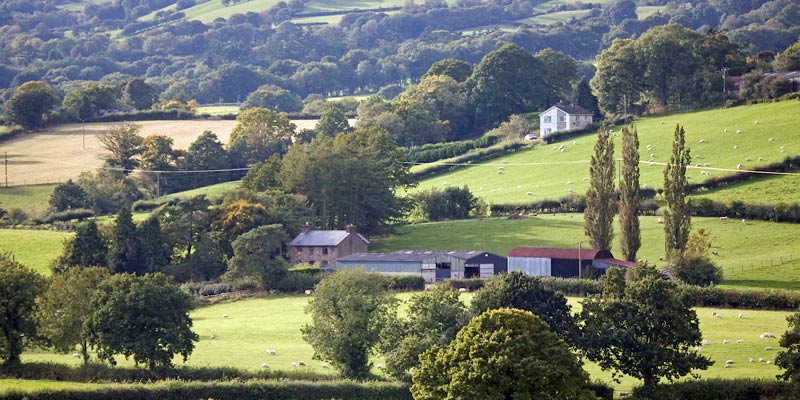
This includes efforts by the animal feed, combinable crops, crop protection and agronomy, fertiliser, and seed sectors on key issues which include the sustainable sourcing of livestock feed ingredients, enhancing soil health, and supporting crop yields.
To that end, AIC Services developed a responsible soya sourcing module as part of its Feed Materials Assurance Scheme (FEMAS), which covers all feed ingredients intended for direct feeding to animals or for inclusion in compound feeds and blends.
Participating businesses produce livestock feed to certified Standards, including on sustainable soya sourcing.
AIC Services also manages a Palm Oil Credit Scheme (APOCS) for Members to facilitate the purchase of responsible palm oil.
Watch the video below for an overview of the UK animal feed sector.
When it comes to safety of food and feed, AIC Services operates three core UK trade assurance schemes to support supply chains in effectively managing and mitigating risks.
The Universal Feed Assurance Scheme (UFAS) manages risks within the compound and merchant feed sector. The Feed Materials Assurance Scheme (FEMAS) manages feed safety within feed ingredients, whilst the Trade Assurance Scheme for Combinable Crops (TASCC) covers the safe storage and handling of crops including grains, oilseed and pulses destined for human or livestock consumption.
These schemes have “earned recognition” with the UK Government, which ensures they are part of the food and feed enforcement requirements.
Watch the video below to find out more about these food and feed trade assurance schemes.
How has Brexit impacted the UK’s food security?
Brexit has resulted in major challenges to trade between the UK and EU with disruptions to supply chains and logistical difficulties.
Despite this supply chains have proven resilient and worked to overcome significant challenges, ensuring that food still makes it to the end consumer.
However, the Government needs to address the barriers that have arisen because of the UK-EU trade agreement have made goods harder to import and export.
There can be little doubt that the lack of alignment on veterinary or phytosanitary measures has often resulted in increased complexity, delays, and costs for businesses.
This divergence has led to frequent, frustrating and unpredictable barriers at borders, adversely affecting the trade of vital agricultural goods such as seed, fertilisers, animal feed, and crop protection products that UK farmers need to produce our food.
This impacts the UK’s ability to sell to other countries too. Examples of costly headaches include UK-grown cereals for export being held up in European ports, exported animal feed being returned to Great Britain due to misunderstandings over paperwork, and seed export times that can be measured in months rather than days.
Similarly, there are increased costs, longer delays, and more complications for food supply chain businesses importing goods.
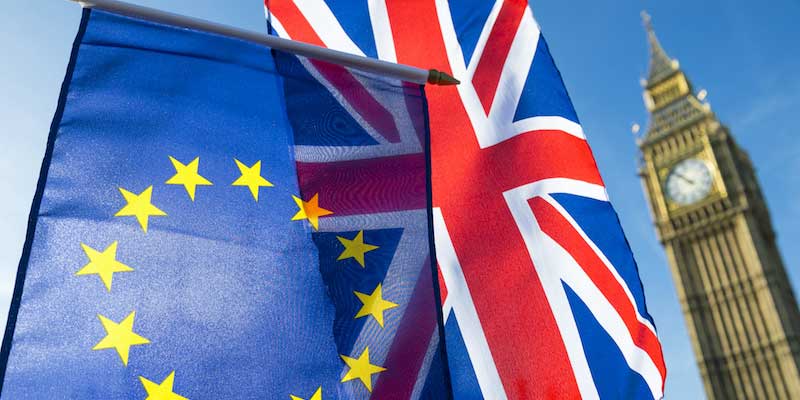
AIC advocates the UK negotiating a functioning veterinary or “Sanitary/Phytosanitary (SPS)” agreement with the EU. This would allow goods to be traded more easily with the EU and with Northern Ireland, while respecting the UK’s independence in trade and legislation.
However, Brexit also presents opportunities to support local farmers, improve self-sufficiency, and tailor agricultural policies to the UK's specific needs.
There are potential benefits of regulatory divergence enabled by EU Exit, as seen with the UK approach to precision breeding (gene editing), deforestation, and speed of decisions made on trade and tariff policy.
Within food and feed safety, the UK has maintained “mutual recognition” of its assurance schemes with key EU trading partners, helping to facilitate trade and provide market confidence.
AIC seeks to have collaborative working arrangements in these areas to assist in the free movements of goods.
How does food waste affect food security in the UK?
Food waste undermines food security by wasting resources that could feed people or animals.
Reducing waste through better supply chain management and consumer education can improve overall food availability and sustainability.
The Waste and Resources Action Plan (WRAP) estimates that the UK wasted 10.7 million tonnes of food in 2021. The vast majority of this waste occurred within households, and at food manufacturing, retail, and hospitality and food service stages in the food system.
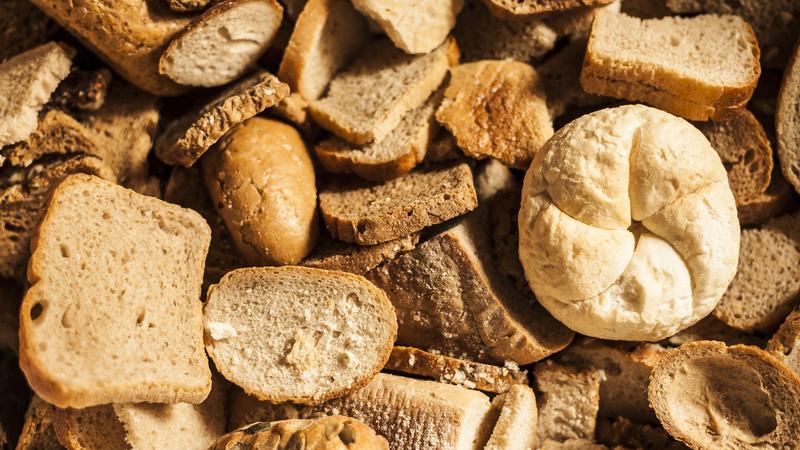
The animal feed sector has already taken significant steps to cutting food waste by taking former foods and processing them to be repurposed as nutritious ingredients for livestock feed.
Food products for human consumption which fail to meet a manufacturer's required standards can be classed as a "former foodstuff", destined for use in livestock feeds.
For example, chocolates, crisps and croissants have an oil content meaning they are “fat-fortified”, and this offers a nutritional value when used to make animal feed. Former foodstuffs have also typically undergone heat processing, meaning the starch and other nutrients are more easily digested.
More than 650,000 tonnes of "former foodstuffs" are processed each year in the UK. With the support of the Food Standards Agency, the UK Former Foodstuffs and Processors Association (UKFFPA) was set up as an affiliate of the Agricultural Industries Confederation (AIC) in 2014.
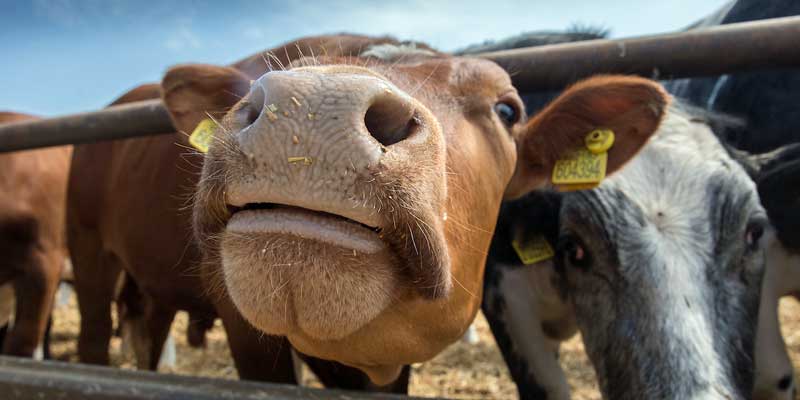
Former foodstuffs are also managed under the Feed Materials Assurance Scheme (FEMAS) to ensure feed and food safety for these supply chains.
Read more about the UKFFPA and watch the video below to find out more.
What policies are needed to improve the UK’s food security?
The conclusions of the Powering Productivity for Sustainable UK Food Security report (2023) finds that improving food security encompasses policies and strategies aimed at guaranteeing a stable and reliable food supply.
These policies and strategies should also promote healthy diets, support local production as much as possible, better prepare for climate change impacts, and invest in training and education to sustainably meet the food needs of the population.
As the foundation of food supply chains, agricultural production and the balance of trade is a cross-policy issue.
For too long the Department for Environment, Food and Rural Affairs (Defra) has been expected to carry a role that AIC believes should be a priority for all of Government.
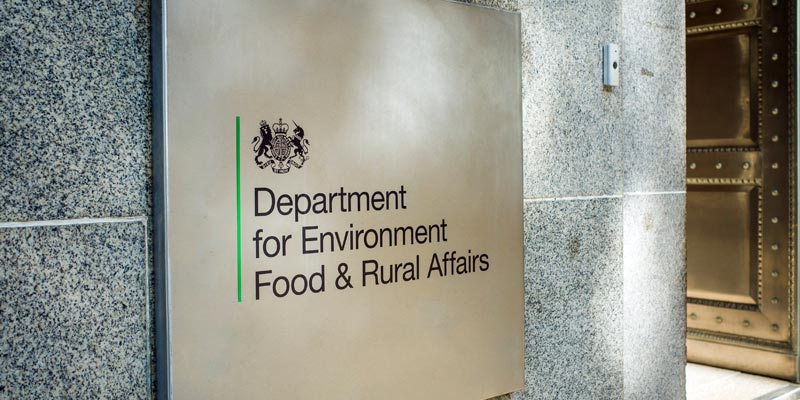
The onus lies not solely with Defra but extends across many governmental departments. Agriculture is a devolved policy area, meaning that the governments of Northern Ireland, Scotland, and Wales dictate the respective country’s approach to food security.
From the Treasury to Trade, Education to Energy Security and Net Zero, a cross-departmental effort with input from all devolved nations of the UK is essential to build a robust, pragmatic strategy that delivers for the whole country.
Read the blog below for more on this.
Other core food security policies include:
A UK-wide strategy on critical raw materials
Agricultural production in the UK relies on inputs such as seeds, fertiliser, animal feed, and crop protection products.
AIC and its Member businesses need the UK Government working across all departments to understand the inputs required for our food supply chain, and particularly those we do not produce in the UK.
Although reliance on imported farm inputs will continue, the risks of being reliant on individual countries for them must be recognised. The EU has passed a Critical Raw Materials Act, so that its Member States can access secure and sustainable raw materials. AIC believes the UK should do the same.
Better data from Government
UK commodity traders buying and selling crops such as wheat, barley, oilseeds, and pulses currently rely upon trade data provided by HM Revenue & Customs, usually 8-12 weeks after a trade has taken place.
This long data lag is a major problem for wider food supply chains, because it means that the whole of the UK is unable to secure live, real time data of trade flows of food in and out of the UK.
Our food system picture is unclear, with a lag of data on stocks of core commodities in the UK significantly compromising the ability of supply chains to forward plan demand requirements.
AIC believes the UK needs a modernised, quicker turnaround of trade data back to business in order to improve supply chain productivity and rely less on imports.
Managing regulatory divergence with the EU and within the UK
Food security will be strengthened by the UK and devolved Governments working with industry to track and monitor divergences in policies and standards between the UK and EU, and within England, Northern Ireland, Scotland, and Wales.
This could be aided by relevant ministers for food and agriculture in England, Northern Ireland, Scotland, and Wales meeting regularly to coordinate a common approach.
Currently there is no formal policy or mechanism established by the UK Government to monitor or track the growing policy divergence between the UK and EU post-Brexit, with trade bodies and businesses left to undertake this crucial work themselves.
What measures are needed to enhance the resilience of the UK’s food system?
What we do with our land resource, and the food we produce with it matters for our economy, our productivity, our environment, and our people. Unlike other countries, the UK lacks a joined-up, cross-Government strategy on land use or food security.
As the Powering Productivity for Sustainable UK Food Security report (2023) concludes, the UK would benefit from the oversight provided by a statutory body established by government to operate independently beyond short-term parliamentary cycles.
An independent UK Food Security Committee could advise the UK and devolved governments on national and strategic food security by taking account of the wide-ranging issues which determine agricultural productivity.
It could consider the food production and land use balances needed for the UK across all Whitehall departments.
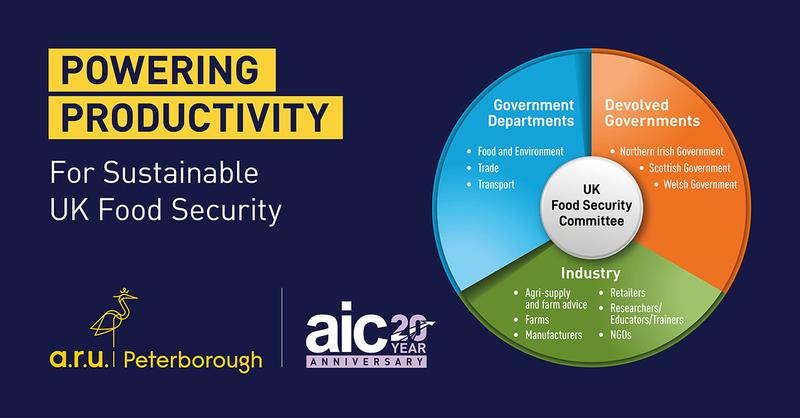
This recommendation is strongly supported by the Agricultural Industries Confederation (AIC) and a wide range of businesses, industry stakeholders, leading academics and politicians. Click below to read more.
The Powering Productivity for Sustainable UK Food Security report (2023) also finds that the resilience of the supply chains that support the UK's food system, the following measures are needed:
- Diversifying sources of food imports and suppliers to reduce dependency on specific regions or countries.
- Investing in technology, infrastructure, and data solutions to improve efficiency, traceability, transportation, and storage capabilities.
- Promoting sustainable farming practices, local food production, and innovation in agriculture.
- Strengthening relationships and collaboration between government, industry, stakeholders, and local producers.
- Supporting research, development, and workforce training to address challenges collectively and build a skilled and adaptable workforce.
- Implementing policies that prioritise food security, sustainability, and transparency in decision-making processes.
- Developing contingency plans, enhancing communication, and addressing labour shortages to ensure a coordinated and resilient food supply chain.
AIC is also working with the UK Government and related agencies to ensure that food and feed safety standards are upheld in existing and future policy development.


